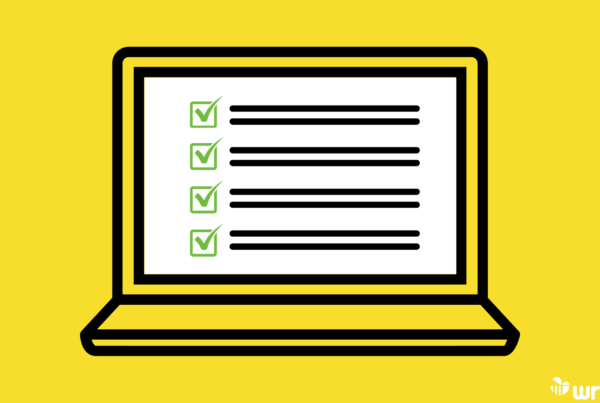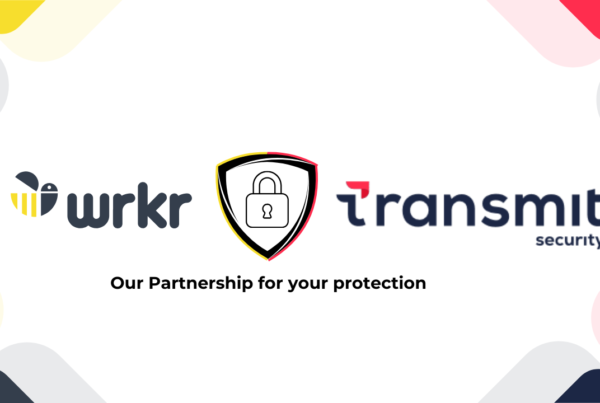
From reducing legal liabilities to maintaining workplace safety, this blog covers all the key factors and best practices for contractor compliance management, making it a must-read for any business owner or manager.
In today’s fast-paced business world, contractors are becoming an increasingly popular option for companies looking to get work done efficiently and cost-effectively. However, working with contractors comes with risks, including fraud, security breaches, and non-compliance with laws and regulations. To mitigate these risks and ensure that you are working with a credible contractor, conducting a thorough verification process is essential before entering into a business relationship.
In this blog, we discuss the following:
- Importance of Contractor Compliance Management
- Key Elements of Contractor Compliance Management
- Best Practices in Contractor Compliance Management
Let’s dive deeper!
Importance of Contractor Compliance Management
Contractor compliance management is essential to any business with third-party contractors or service providers. Compliance management ensures that contractors comply with all legal, regulatory, and ethical standards set by the business and the industry.
Here are some reasons why contractor compliance management is essential:
Legal Compliance
Businesses are responsible for ensuring that their contractors comply with all legal requirements related to their services. Failure to comply with legal obligations can result in lawsuits, penalties, and reputational damage. An employee onboarding solution like Wrkr Ready can help ensure contractors comply with legal requirements such as work permits, licenses, and certifications. The solution can provide an automated process for verifying and documenting compliance, reducing the risk of non-compliance and legal penalties.
Risk Management
Contractors can significantly risk a business’s operations, finances, and reputation. Compliance management helps mitigate these risks by ensuring contractors meet specific performance criteria and comply with safety, quality, and security standards. Wrkr Ready mitigates risks associated with contractor compliance by providing a central repository for important documents and information related to contractors. This can help ensure that all necessary information is collected, reviewed, and acted upon promptly, reducing the risk of errors, omissions, and other compliance-related issues.
Cost Savings
Non-compliance can result in costly legal actions, fines, and damage to reputation. By automating and streamlining the contractor onboarding process, Wrkr Ready reduces administrative costs associated with manual processes such as paper-based forms, data entry, and document management. This can also help reduce the risk of errors and delays, resulting in additional costs.
Improved Quality
Compliance management promotes a culture of quality and accountability. It ensures contractors adhere to performance standards, quality control measures, and safety guidelines, resulting in better services and products. Wrkr Ready ensures contractors know and comply with relevant policies and procedures, further improving quality and reducing risk.
Reputation Management
Contractors’ actions can significantly impact a business’s reputation. By ensuring contractors comply with legal and other requirements and are adequately onboarded and trained, Wrkr Ready can help protect a company’s reputation. This can help build trust with customers, partners, and other stakeholders and can help ensure that the company is viewed as a responsible and ethical employer.
Key Elements of Contractor Compliance Management
The key elements of contractor compliance management include;
- Contractor Selection Process
- Contract Development and Review
- Training and Education
- Performance Monitoring and Auditing
- Risk Management and Mitigation
- Communication and Reporting
Contractor Selection Process
The selection process should include a comprehensive evaluation of contractors’ credentials, safety records, insurance coverage, and compliance history. Contractors should be required to provide documentation to support compliance with legal requirements and industry standards. Wrkr Ready streamlines the contractor selection process by providing tools to collect and review information about the contractors’ credentials, certifications, licenses, and other compliance-related documents. The solution can also help automate the process of background checks and reference verifications, making it easier to screen contractors for compliance risks.
Contract Development and Review
Contracts should clearly define the scope of work, deliverables, timelines, and payment terms. Wrkr Ready provides a centralised platform for contract development and review. The solution can track the progress of the contract and ensure that all required compliance-related clauses are included in the contract.
Training and Education
Contractors should receive training on the business’s policies and procedures, including safety, environmental, and labour regulations. This training should be documented and tracked to ensure contractors have the knowledge and skills to comply with legal requirements and industry standards.
Performance Monitoring and Auditing
The business should establish a system for monitoring contractor performance and conducting audits to ensure compliance with legal requirements and industry standards. Wrkr Ready monitors the performance of contractors by tracking their compliance-related activities, such as training completion, document submission, and incident reporting.
Risk Management and Mitigation
The business should identify and assess potential risks associated with contractor activities and develop strategies to mitigate those risks. Wrkr Ready sends alerts and notifications to stakeholders when compliance-related issues arise and help track the progress of risk mitigation activities.
Communication and Reporting
The business should establish clear communication channels with contractors to ensure they know its policies and procedures, including safety, environmental, and labour regulations. Wrkr Ready provides a centralised platform for stakeholders to collaborate, share documents, and track the progress of compliance-related activities. The solution can also generate compliance-related reports to help stakeholders monitor compliance-related metrics and KPIs.
Best Practices in Contractor Compliance Management
Some of the best practices in contractor compliance management are:
- Develop and implement a contractor compliance program
- Educate and train personnel on compliance management
- Monitor and enforce compliance
- Conduct regular audits and reviews.
- Using technology for contractor compliance management
Develop and implement a contractor compliance program
The first step in effective contractor compliance management is to develop and implement a contractor compliance program. The program should outline contractors’ requirements to comply with all applicable laws, regulations, and standards. The program should also establish the roles and responsibilities of all personnel involved in the compliance process.
The contractor compliance program should cover safety, environmental protection, and quality assurance. It should also specify the process for onboarding new contractors, including due diligence checks and prequalification requirements. The program should also outline the consequences of non-compliance, including termination of the contractor relationship.
Wrkr Ready can provide a framework for developing and implementing a contractor compliance program. The solution can assist in identifying the specific compliance requirements that apply to contractors, establishing policies and procedures, and defining roles and responsibilities for compliance management.
Educate and train personnel on compliance management
The next step is to educate and train personnel on compliance management. Ensuring that all personnel involved in contractor compliance management understand their roles and responsibilities is essential. Personnel should be trained on the contractor compliance program, including the requirements and consequences of non-compliance.
Training should also cover best practices in contractor management, such as effective communication and documentation. Personnel should be encouraged to report any non-compliance issues promptly, and a process should be in place for addressing such issues.
Wrkr Ready can provide training resources that educate personnel on compliance management. HR teams can set up training modules and courses on contractor compliance management, including regulatory requirements, contractual obligations, and best practices for managing contractors.
Automate, monitor and enforce compliance
Once the contractor compliance program is in place, the next step is to monitor and enforce compliance. Businesses should regularly review contractor compliance with the program’s requirements. Monitoring should include site inspections, document reviews, and regular communication with contractors.
If non-compliance is identified, businesses should take prompt and appropriate action. This may include issuing corrective actions, terminating the contractor relationship, or legal action.
Wrkr Ready can help automate, monitor and enforce compliance tracking of contractor compliance data. Using dashboards and reporting capabilities that provide visibility into compliance status and identify areas where non-compliance issues may occur.
Conduct regular audits and reviews
Regular audits and reviews are an essential component of effective contractor compliance management. Audits should be conducted periodically to ensure the contractor compliance program is effective and up-to-date. Audits should include a review of contractor compliance with the program’s requirements and an evaluation of the program’s effectiveness.
Wrkr Ready can support regular compliance audits and reviews by providing a centralised repository of compliance data. The solution can also offer audit trails that track changes to compliance records over time and ensure that compliance records are up-to-date and accurate.
Using technology for contractor compliance management
Businesses should consider using technology to improve contractor compliance management. Technology can automate many aspects of the compliance process, such as document management and tracking. It can also provide real-time verification of contractor compliance, allowing businesses to identify non-compliance issues promptly.
One way to achieve this is through an employee onboarding solution. While primarily designed for hiring employees, these solutions can also be used to verify the credibility of contractors. Here are some of the ways that Wrkr Ready can help you to conduct contractor entity checks:
Digital Contract Signing: Wrkr Ready eliminates the need for physical copies of the contract to be printed, signed, and sent back and forth between the contractors and the company. The digital contract signing feature allows contractors to sign contracts from anywhere, anytime, using any device. This convenience can make the onboarding process much more efficient for both the contractor and the company. Wrkr Ready uses advanced security measures to ensure the authenticity and integrity of the signed contracts. Also, the platform provides a reliable and easily accessible record of all signed contracts, including the date and time of signing and any revisions made to the contract. This can help ensure compliance with regulatory requirements and make tracking the status of contracts easier.
Background Checks: Wrkr Ready helps you to conduct background checks, record checks, and employment verification. By conducting these checks, you can ensure that the contractor has a clean record and is trustworthy.
Identity Verification: It is essential to ensure that the contractor is who they claim to be. Wrkr Ready can help you to verify the contractor’s identity by asking for ID documents and conducting facial recognition checks.
Compliance Checks: Depending on the type of work the contractor will be doing, it may be necessary to conduct compliance checks to ensure that they are licensed, insured, and compliant with relevant laws and regulations. Wrkr Ready conducts these checks and provides the contractor is legally authorised to perform the work.
References and Reviews: An employee onboarding solution can also help you to collect references and reviews from the contractor’s past clients. This can give you an insight into the contractor’s work quality, reliability, and professionalism.
Using an employee onboarding solution to conduct contractor entity checks, you can mitigate potential risks and ensure that you work with a credible contractor. In the long run, this can save time, money, and reputational damage. If you plan to work with contractors, consider using Wrkr Ready to conduct thorough verification checks. Book a demo now.







